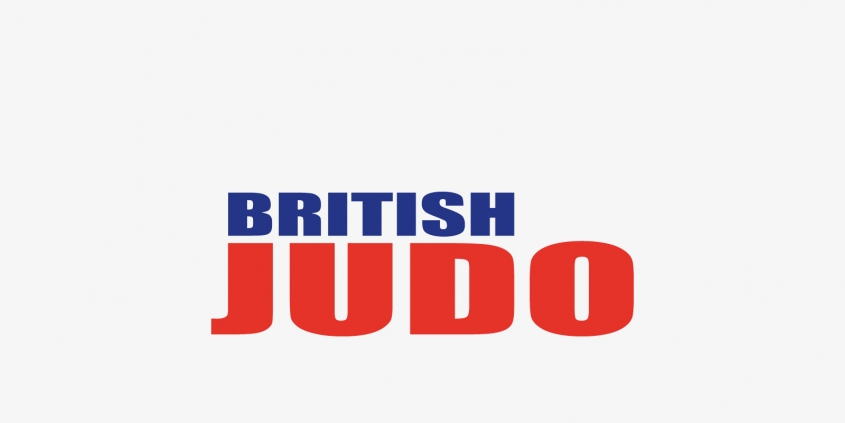Judo Level 4 coaching course flourishes following sportscoachUK green light
Following the receipt of endorsement from sportscoachUK, we caught up to with British Judo’s Technical Director, Colin McIver and Education and Training Manager, Joyce Heron to get their exclusive insight on how accreditation for the UKCC Level 4 award came about and the impact it is having on the sport.
Why did the sport need a Level 4 qualification?
Joyce Heron: “The UKCC Level 4 originally was all about high performance coaches and coaches that can cope in a performing environment. We’re looking for coaches that are creative and innovative to take the sport forward. So from a judo point of view in the long term we are very much looking to develop our coaches at the highest level in all areas and domains, whether its schools, performance, high performance or participation”.
It has been a key project in recent years for the technical department at British Judo:
JH: “We started in March 2013 when Colin and I first had a conversation with sportscoachUK looking at how we could increases the levels of qualifications we already had”.
Colin McIver: “The 9 months between April and December 2013 we worked flat out on it with sportscoachUK and the university. We started working with Sheffield Hallam to develop the programme the modules early summer and through to the autumn [2013]. We were at the university nearly every week to get everything ready”.
JH: “By September last year it was fully endorsed by sportscoachUK after a submitting it which involved a gruelling 5-6 hour presentation to them”.
Why did you decide to work with Sheffield Hallam University?
CMcI: “We went out to tender and 12 universities applied. We interviewed four and chose Sheffield Hallam. There were lots and lots of good programmes out there, but the reason we choose Sheffield Hallam is that they were prepared to write a bespoke programme for judo. We didn’t want to go with the others because they were offering us stuff off the shelf that other sports had been using. We were very clear with them what judo wanted and Sheffield Hallam were very clear that what we wanted would be a workable programme. We worked with sportscoachUK all the way through so it fitted together very quickly”.
How does the course work?
CMcI: “The good thing about the level 4 is that the academic requirements aren’t as stringent as you might need for similar courses at this level. So the performance analysis stuff you get the software, you do the analysis and do a key study and then report back, so it’s very practical. The high performance staff at the BJA Centre of Excellence in Walsall who are going through the course were able to apply it nicely to their day-to-day work. They of course have background reading to do but the essays are shorter (1,500 words) and they do PowerPoint presentations as well”.
JH: “Plus the coaches build up a portfolio throughout the two years of their day-to-day workings as a coach which is really useful for them. We’ve been using PebblePad to store all that information against the 15 competencies required for the Level 4 award”.
CMcI: “Initially it was only judo but we came round to the idea that it would be better to have other sports there so there would be a cross-fertilisation of ideas. We were very lucky in our first year to get Jessica Ennis-Hill’s coach Toni Minichiello, he’s in the second year now. We also have an Olympic medallist from Japan [Yoko Tanabe] who is part of the current cohort and she comes over three times a year to study”.
JH: “Yoko was over here studying at Loughborough University and worked with Colin and I for 9 months whilst she was here, so that’s when the interest in education came about for her. She’s also very much involved in the Japanese coach education side of things. We’re learning from them and their learning from us so there’s a good exchange of ideas there”.
What benefits will this new qualification bring to the coaches and the sport?
CMcI: “This is the first qualification at this level and they [the coaches] will never have been exposed to this level of coach education before. It includes a lot more subjects like psychology, strength and conditioning and a wide range of sport science subjects which the coaches have probably only briefly touched on before”.
JH: “Working with Sheffield Hallam we have the top researchers in the different fields as Colin said, in psychology, bio-mechanics, performance analysis, nutrition amongst many other domains that do the highest quality of research. These coaches will be exposed to that latest research and they will be able to constructively analyse that to see where it fits in to their own environments and use it within those environments. “Looking back when we first embarked on this [the Level 4] for us it was very about the education but also about gathering research in the longer term which is specific to judo. So after the first cohort go through the post graduate diploma we’re hoping that a large percentage of them will stay on and do further research for the full Masters programme. That’s why we’ve specifically written that into UKCC Level 4 even though that only requires them to do the graduate diploma. We are hoping that they go to that next level and by doing the Masters they will get a BJA Level 5 at the end of it. So it’s also about getting research that will inform the sport moving forward”.
Will our national coaches of the future go through this system?
CMcI: “We’ve got 8 field staff and 6 of them are on the programme. All of the high performance coaches at Walsall are on the programme but some have deferred because of their Olympic commitments so all of our key staff will be on the programme”.
JH: “Nigel Donohue [British Judo Performance Director] is promoting the UKCC Level 2 to the young judoka at the performance centre so last summer about 12 or 13 of them started their UKCC Level 2. In the future we hope they will continue their education so it’ll be a process for them progressing onto Level 3 and 4 so when their careers finish that opportunity is there for them. They are our coaches of the future so it’s important that we work with them from an early an age. Obviously, their competitive career is their real focus but at the same time it gives them a nice balance outside their training”.
CMcI: “We are really, really pleased with the way the programme is developing and the feedback from the people on it (27 so far split over two cohorts) is really good. We think it will get better and more and more people get it and more sports will see what we’re doing and come on board”.
So, are other sports already asking you how we did it?:
JH: “We have what we call the Level 4 Community Practice that’s when the universities and the NGBs come together along with some of the coaches and we share ideas and good practice, and there is a lot of learning that goes on there. It’s very new and a few sports have been involved in the process for a 2 or 3 years but for the majority it’s pretty new and everybody is still learning”.
If you are interested in finding out more information about the Level 4 course or are interested in enrolling onto the course contact Joyce Heron at joyce.heron@britishjudo.org.uk.




